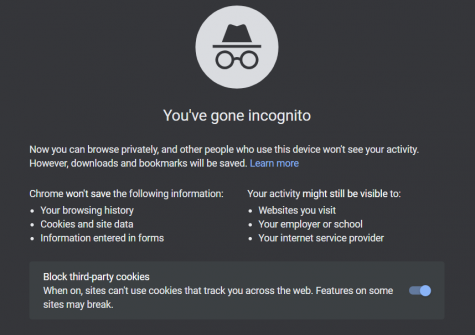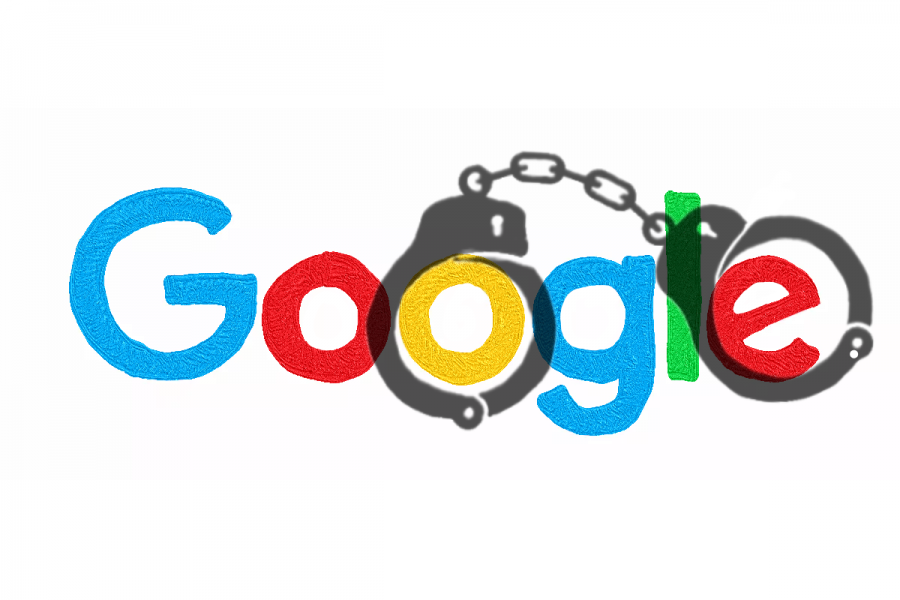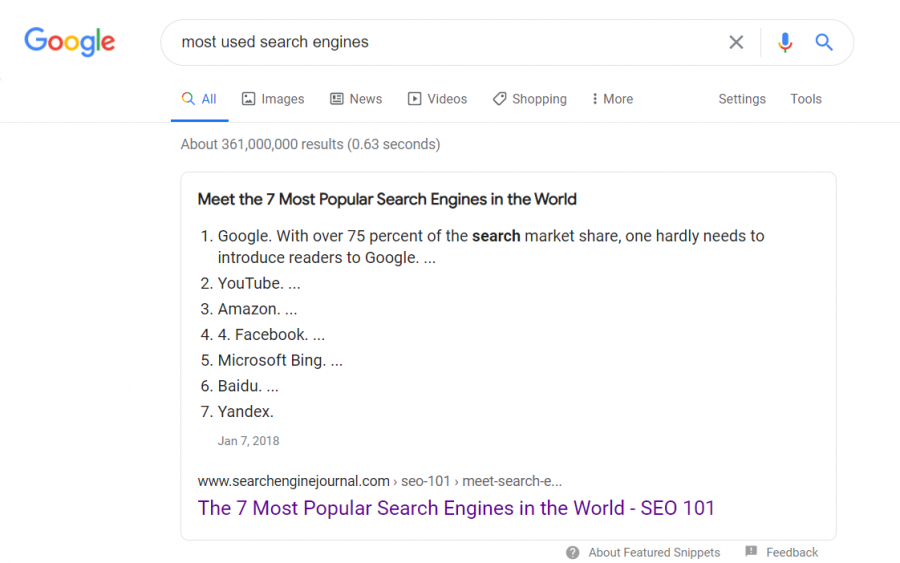It’s not just a search: the google lawsuits and their effect on journalism
Drawn by Naisha Roy using Paint 3D
Just google it. “Google” is an official verb according to the Meriam-Webster dictionary, which isn’t surprising considering how often it’s used on a daily basis. But with a plethora of lawsuits headed their way, the company may not be giving journalists their fair share.
October 23, 2020
Google is by far the most popular search engine in the world, followed only by Youtube, which is a subsidiary of Google. With an influence this huge, the parent company of Google has a market value of over a trillion dollars. However, recently, the corporation has seen a multitude of lawsuits from both news websites and state and federal government as it grows in power. As students who use the search engine every day, we need to understand these lawsuits, where they’re coming from, and how we can do our part.
News websites
People read the news every single day, and with that comes hundreds of clicks, searches, and ad opportunities. So why are news companies suing the container that gives them the opportunity for those very clicks? If Google was giving these websites an accessible place to advertise and house their information for free, then they couldn’t possibly have a reason to sue. Well, the reason these companies may have a right to sue is due to Google’s snippet and excerpt feature. When you search a common thing on Google, such as “Most popular search engines,” Google will pull a snippet from one of the websites underneath answering your question, so you won’t have to click on the website. This is actually very convenient for users, enabling them to get their news in bite-size pieces. However, this isn’t Google’s information: it’s the websites’ content. And by providing an excerpt at the top of the search page, Google is preventing users from actually clicking through to the source, which means the source doesn’t really get paid. According to several news websites, this is a violation of Fair Use, and the Australian government has recently passed legislation to prevent it.
Australia recently released the Australian News Media Bargaining Code, which would serve as a regulation so Google couldn’t use excerpts from these websites. However, it also requires Google to give news websites user information, which means large news conglomerations would be able to manipulate their websites to better fit the Google algorithm, outperforming smaller, independent journalists. Google Australia even released a series of videos and started a campaign called #AFairCode to fight against the code, providing the analogy of a bus driver delivering passengers to a restaurant and then also having to pay those very restaurants. However, the real truth is a bit more complicated. It’s more like the bus driver is getting free samples from each restaurant and giving them to the passengers, meaning a lot of the passengers aren’t actually leaving the bus to eat at the restaurants. Ann Reardon, a Youtuber who has a series against content farms, explained the analogy beautifully in her last video.
How does the News Media Bargaining Code affect American citizens? Well, the problem is, it doesn’t. While the code has a lot of issues (such as favoring huge media corporations over independent journalists), it is a step towards regulating the immense power of Google. The United States, however, still allows these snippets fairly often, and as someone who wants to be a journalist, that scares me. Local newspapers are already facing a huge crisis as their readership goes down, and they often depend on revenue from online advertising and subscriptions on their websites to keep them afloat. Not only is Google taking away possible subscribers and turning away advertising companies, but it’s also reducing these well-written articles to just a phrase that answers a question. Online newspapers do have the option to opt-out of featured snippets, however, as Reardon mentioned [in her video], this means they get their results posted later on the search page, meaning fewer “clicks”.
User convenience is very important, and it may seem nice to get these excerpts answering our questions without having to click on any links. However, every time we see an answer (specifically to the news) without actually going to the source, we’re taking away the money and recognition that the writer and publication deserve. Until the law finds a way to regulate this, we can be good digital citizens by simply clicking on the link in the excerpt and giving the website the credit it deserves. Google is a great tool, but it isn’t a creator— and just by taking a few seconds and an extra step, we can ensure that the actual creators get their money’s worth.
Federal Antitrust Lawsuit
In addition to facing lawsuits from several news sites, Google is also facing a huge antitrust probe from the United States Department of Justice. There are several factors to this. According to Reuters, “The lawsuit seeks at least $5 billion, accusing the Alphabet Inc unit of surreptitiously collecting information about what people view online and where they browse, despite their using what Google calls incognito mode.”

It’s no secret that companies such as Google use user information for advertising and recommendation purposes, but “incognito mode” is supposed to provide a haven for users who may not want their every move tracked. Although some people, such as your internet provider and school network, may be able to see your search results, Google themselves isn’t supposed to track it. In addition to this, Google is facing a huge antitrust investigation from the Supreme Court, an antitrust means that a company is trying to create or hold onto a monopoly through unfair business practices. The New York Times reported that Google’s employees aren’t allowed to discuss antitrust much and are walking on eggshells when it comes to the topic. Critics say that Google unfairly promotes its own subsidiaries and other ads rather than providing an unbiased list of results. According to CNet, 7 years ago, the FTC held an investigation into this, and couldn’t find any evidence for it; regardless, officials have resurfaced the probe.
Essentially, people are accusing Google of stifling its competitors and attempting to gain a monopoly over the search market. They’re not really far off, considering “the company processes around 90% of all online searches in the US.” We, as students, use this tool every day to complete projects, look up information, and answer questions. It’s scary to think that it’s collecting this much data, especially if something we’re researching may be a bit more sensitive or private.
At the end of the day, with many students doing virtual learning, avoiding the company is impossible. However, there are several steps we can take to ensure that we aren’t aiding a company like Google to steal people’s data and hard work. Several other search engines such as Ecosia use their revenue for good causes, in this case, to plant trees. According to their website, “We’re interested in trees, not your data: we don’t save your searches, we don’t track the websites you visit, we don’t sell your data to advertisers, and your searches are always SSL-encrypted.”
We can use alternative search engines like Ecosia, Bing, or Microsoft Edge to reduce the monopoly Google is starting to have on the market. However, as someone who uses Chrome on a daily basis, I know that’s hard. If the convenience and interface of Google is a must, then students can simply just click through to the actual source of their information instead of stopping at the snippets. We can give smaller news websites recognition rather than just clicking on the first search result that pops up. A small snippet at the top of our screen may not seem like a big deal, but the few seconds we spend clicking on the website may make a huge difference to a journalist.
Disclaimer: The opinions expressed in this piece belong solely to their respective author(s). They do not represent the opinions of South Forsyth High School or Forsyth County Schools.






